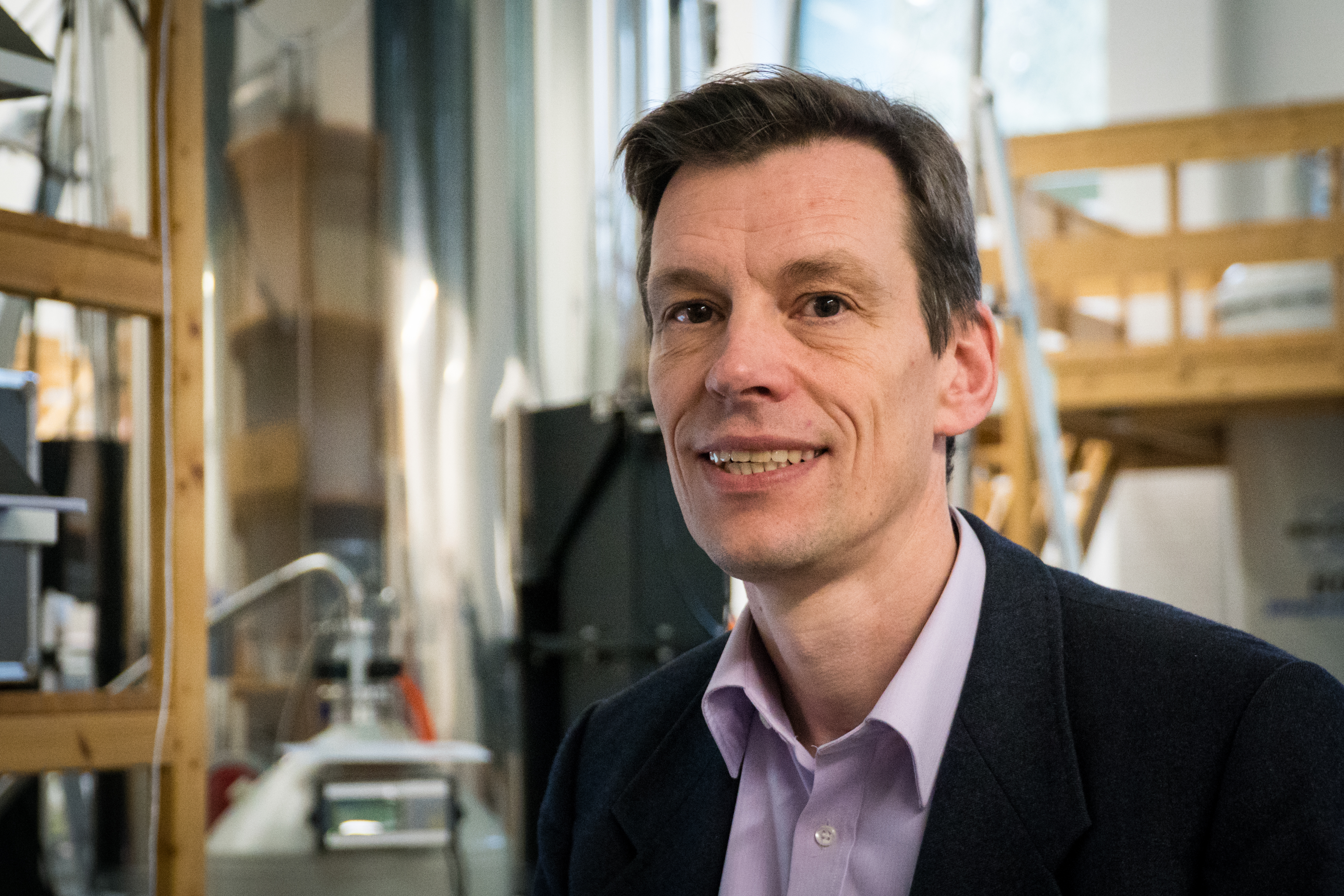Goettingen, April 9th, 2018. Prof. Dr. Markus Zweckstetter (47) from the Goettingen site of the German Center of Neurodegenerative Diseases (DZNE) has been awarded an “Advanced Grant” from the European Research Council. He will explore new techniques on sub-nanometer level to analyze non-membrane organelles. These are special compartments of the cell that are poorly understood so far. However, they play a major role in many diseases like Alzheimer’s disease. Zweckstetter’s work might lead to a deeper understanding how non-membrane organelles can be regulated to develop better treatments for neurodegenerative diseases. For this research, he will receive around 2.5 million Euros for a period of five years. Funding by the ERC is granted after a highly competitive selection process.
Markus Zweckstetter analyzes proteins that play a major role in neurodegenerative diseases using NMR spectroscopy. In a recent study in Nature Communications, he succeeded in connecting the enrichment of disordered proteins in liquid-like compartments in the cell to Alzheimer’s disease. Zweckstetter showed that the pathogenic aggregation of the Alzheimer-related Tau protein very much depends on its clustering in liquid drops. The underlying process is similar to the separation of oil and vinegar in salad dressing and locally much enriches the Tau protein, 50-100 times higher than it normally is in the cell. “These findings lead us to the question: How are these membrane-less organelles formed, which properties do they have and what is their role in neurodegeneration”, says Markus Zweckstetter.
Eukaryotic cells have several compartments that are – different to mitochondria or lysosomes for example- not surrounded by a membrane and have liquid-like behavior in the interior. They are called membrane-less organelles or liquid droplets. These membrane-less organelles have properties that are different to the crowded cytoplasm and nucleoplasm in the cell. For example physicochemical properties are different and protein concentration is much higher, especially of intrinsically disordered proteins. Only a few years ago, it has been described that these cellular compartments are formed via liquid-liquid phase separation (LLPS), a phenomenon still poorly understood. Since then, this subject greatly attracted the attention of the scientific community. Indeed, it becomes more and more clear, that membrane-less organelles and liquid-liquid phase separation have major biological functions and play critical roles in many human diseases.
Markus Zweckstetter works in this emerging field, but there are limits in technology: “The challenge is the resolution in space and time. Currently only a very low-resolution view primarily through light microscopy is available to study liquid-liquid phase separation. The underlying forces and biochemical processes however take place on a sub-nanometer level. So, our aim is to develop powerful methods of NMR spectroscopy that go far beyond the state-of-the-art and team them up with mechanobiology. Thankfully this ERC Grant gives us the possibility to do that.”
„Markus Zweckstetter is a brilliant scientist. We congratulate him on being awarded the ERC Advanced Grant, which recognizes the merits of his work and also gives him the possibility to conduct ground-breaking research,” comments Prof. Pierluigi Nicotera, Scientific Director and Chief Executive Officer of the DZNE. “This is a high-risk/high-gain research project, because understanding this mechanism will have a major impact on all disciplines – from medicine to physics. Findings obtained can improve the development of drugs against neurodegenerative diseases and offer new therapeutic approaches.”
ERC Advanced Grants support well-established top researchers and leaders in their respective field. The grants are giving investigators the chance to realize their most creative ideas and potentially produce results that will have a major impact on science, society and the economy. This year, the ERC has evaluated from 2,167 research proposals, out of which 269 scientists from 20 countries in the European Union have been elected for funding.
Prof. Dr. Markus Zweckstetter studied physics at the Ludwig- Maximilians-University Munich. He conducted his doctoral research at the Max Planck Institute for Biochemistry in Martinsried and received his PhD from the Technical University of Munich. He worked as a postdoctoral fellow at the National Institutes of Health in Bethesda (United States). In 2012, he established the Senior Research Group Translational Structural Biology in Dementia at the DZNE. He is also head of the Research Group Protein Structure Determination Using NMR at the Max Planck Institute for Biophysical Chemistry and is teaching as a professor at the University Medical Center Göttingen. Prof. Zweckstetter’s research has been funded by several excellent funding schemes including the Emmy Noether and Heisenberg programs of the German Science Foundation (DFG) and a previous ERC starting grant.


